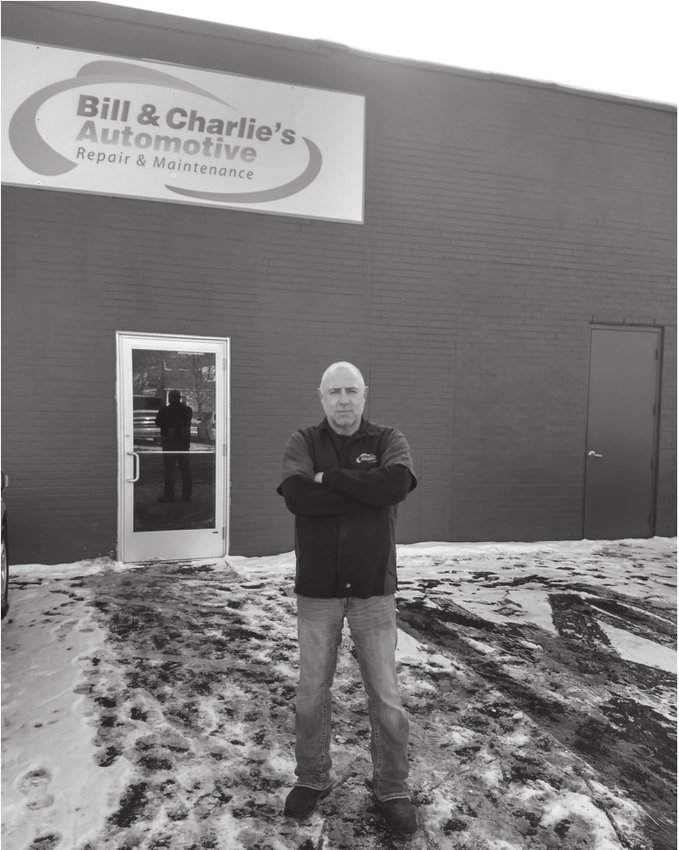
Michigan’s marijuana industry is fueling a boom in Lansing properties zoned for industrial uses, with values increasing by 40 to 50 percent or more in the last year, according to elected city officials and at least one developer.
On the upside, the “marijuana speculators,” as First Ward Councilwoman Jody Washington calls them, will significantly increase property values. On the downside, some Lansing small businesses are finding they no longer have a place to operate and are scrambling to find an affordable replacement.
That’s the case for Greg Days, who owns Bill and Charlie’s Automotive at 1206 E. Oakland Ave. The business, under different owners, has been in that location since 1970, he said, but last month he was informed the property had been sold and the new property owner was terminating his month-to-month lease.
“I’ve been looking for a new place. I have a Realtor looking. I have friends and family looking. But there isn’t anything,” he said, standing in his shop near two hydraulic lifts and a large truck missing an engine.
Lately, his days have less to do with repairs and oil changes on the mostly highend foreign imports he services and more on figuring out where to relocate his business. His shop, which has to be located in an industrial zone, needs at least the same 6,500 square feet and 14-foot-high ceilings to accommodate his operations.
The building sold in March 2016 for $210,000. On Nov. 27, 2017, Team One Realty LLC bought the property for $1.1 million.
A company named HG Lansing LLC has applied for both marijuana grow and provision center licensing for the property. HomeGrown, a marijuana dispensary, is located at the far west end of the building where Days runs his mechanics shop.
Foreshadowing Lansing’s changing economy, the scent of marijuana cultivation overwhelms the smell of greases and oils.
Developers and Realtors are reticent to speak on the record about the land boom. One developer who spoke said his company was not involved in leasing or selling industrially zoned properties to marijuana businesses out of concern for zoning battles as well as the relatively unsettled conflict between federal and state law. But he acknowledged the run-up in prices.
Councilwoman-at-Large Kathie Dunbar welcomed increasing property values, noting that new owners would have a difficult time appealing for lower tax assessments. “They don’t have a reason to go to the tax tribunal and say this property isn’t worth that much, if they are paying that much, do they?” she said.
And while she acknowledged there might be some small businesses being pushed out of their homes, she is also aware of other small businesses that are being bought out by marijuana interests with cash “for more than they might otherwise get for their business.”
Washington, who represents the area where Days’ business is located, said the land speculation is bad for the area. She accused the “speculators” of “snatching up” the industrial zoned properties and “pushing our small businesses out for grows.” As a result, she favors revisiting the licensing ordinance adopted last summer. She wants to add caps on the number of licenses issued for growing, processing, transporting and compliance facilities. That ordinance already has a hard cap of 25 for provisioning centers.
Lansing City Clerk Chris Swope said by text message Tuesday that as of Friday, his office is reviewing 85 applications for provisioning centers, 34 for growing operations, nine for processing facilities and one for a safety compliance operation. He can only approve 20 of the 85 provisioning center applications.
Dunbar said she would oppose any move to place caps on the other licensing options.
“I conceded to the cap of 25 provisioning centers in order to get an ordinance in place to comply with the state,” she said. “I am for the free market.”
New Lansing Mayor Andy Schor said Tuesday that increasing property values are good for the city and that he wanted to wait and see how the licensing process played out before pushing any new regulations.
But Carol Wood, who was expected to be elected Council president Tuesday night, said her concern is that many of the industrial sites abut residential neighborhoods and worries about the impact to those areas.
“We have dealt with the smell issue with grows in residential areas with home grows before,” she said. “Are we going to deal with that with these grows?” She said she would support adding caps for additional licensing categories, but she said the Council will have to move carefully since it is facing a lawsuit from Let Lansing Vote challenging the ordinance. The lawsuit was filed Dec. 19 in Ingham County Circuit Court. The group, which circulated a petition to create its own marijuana licensing ordinance, is challenging the determination by Swope that rejected the petitions as not having enough valid signatures.
“We will certainly be talking about it,” Wood said. “But we will have to be careful moving forward until the lawsuit is settled.”
Support City Pulse - Donate Today!
Comments
No comments on this item Please log in to comment by clicking here